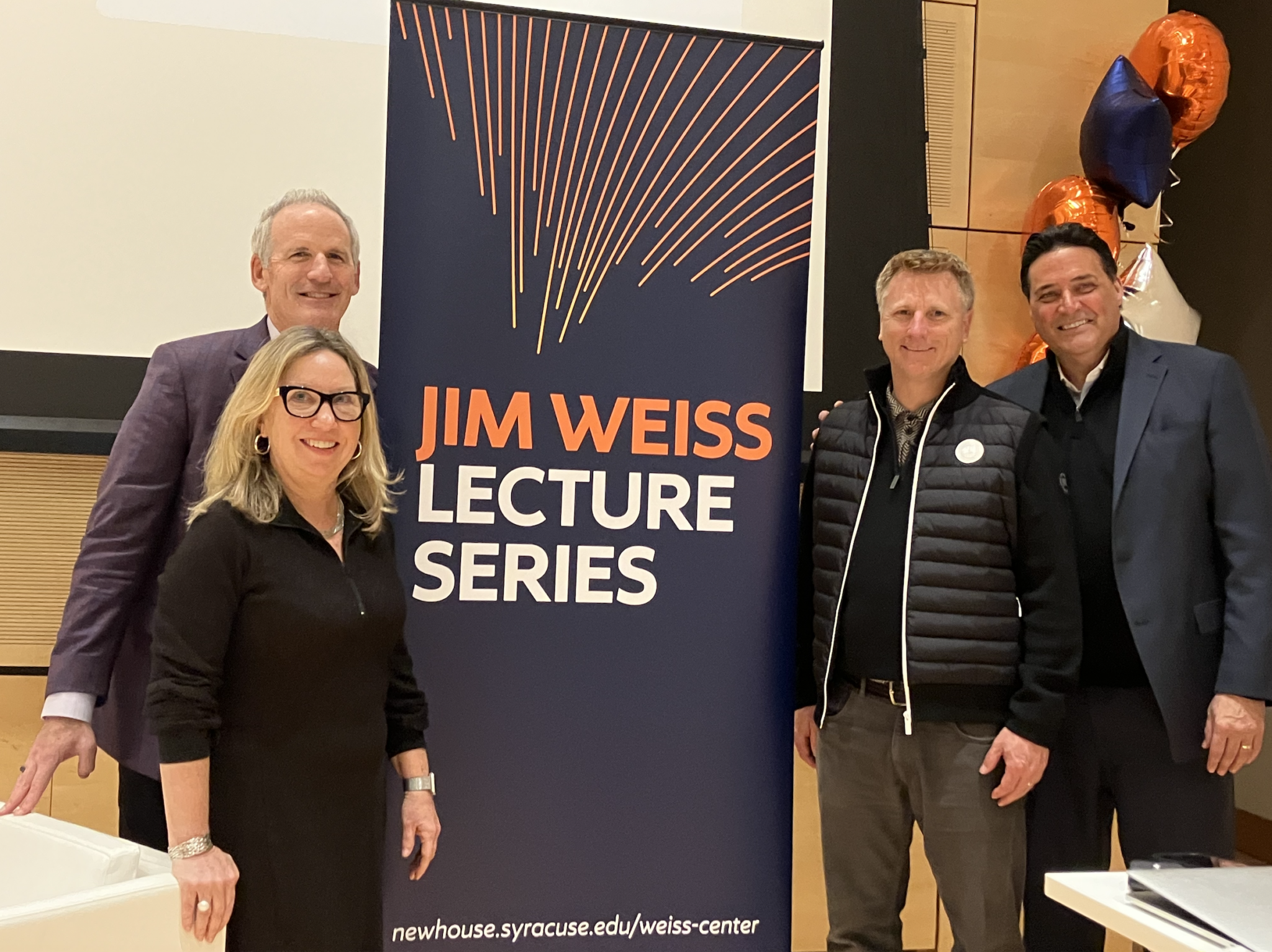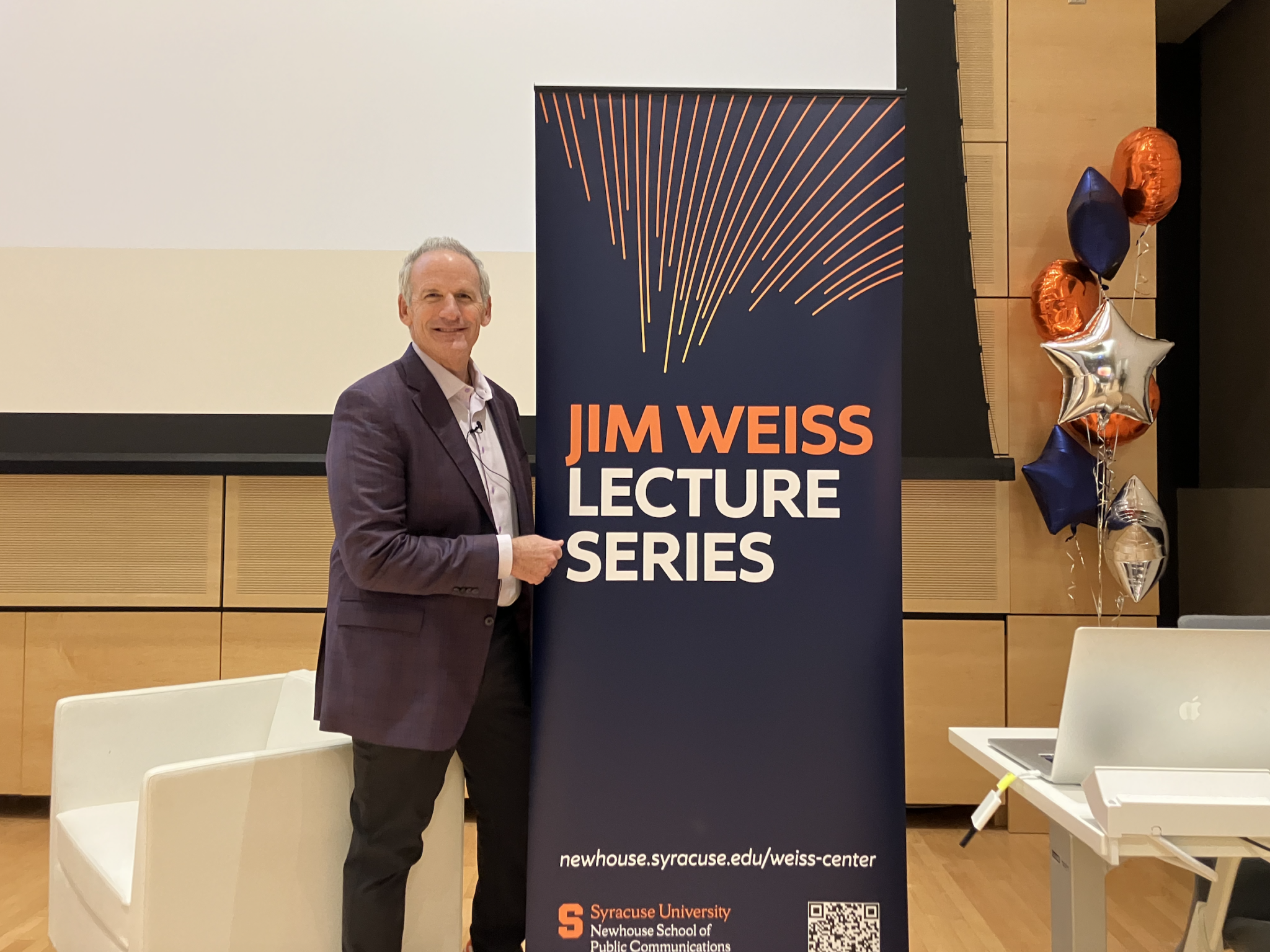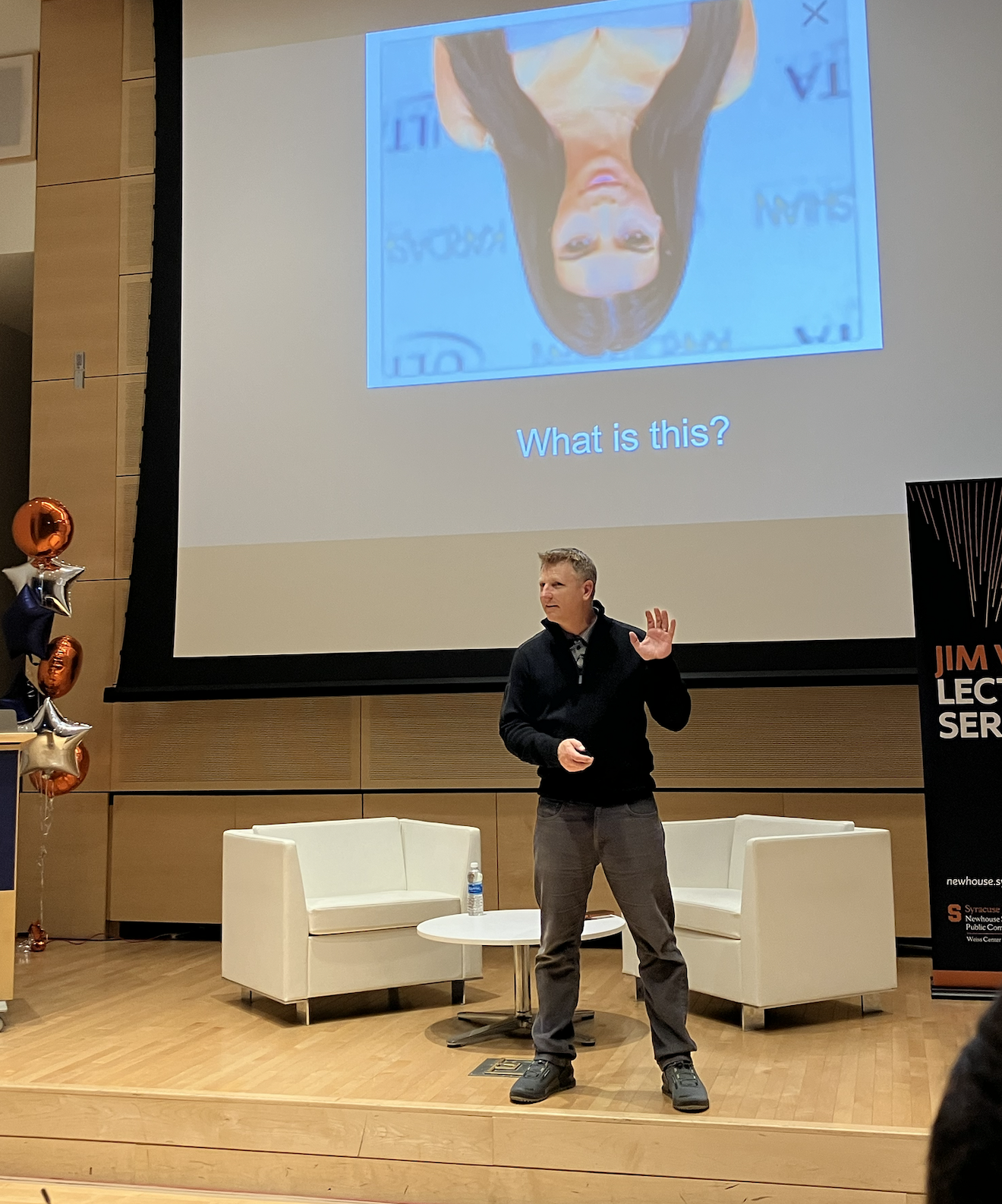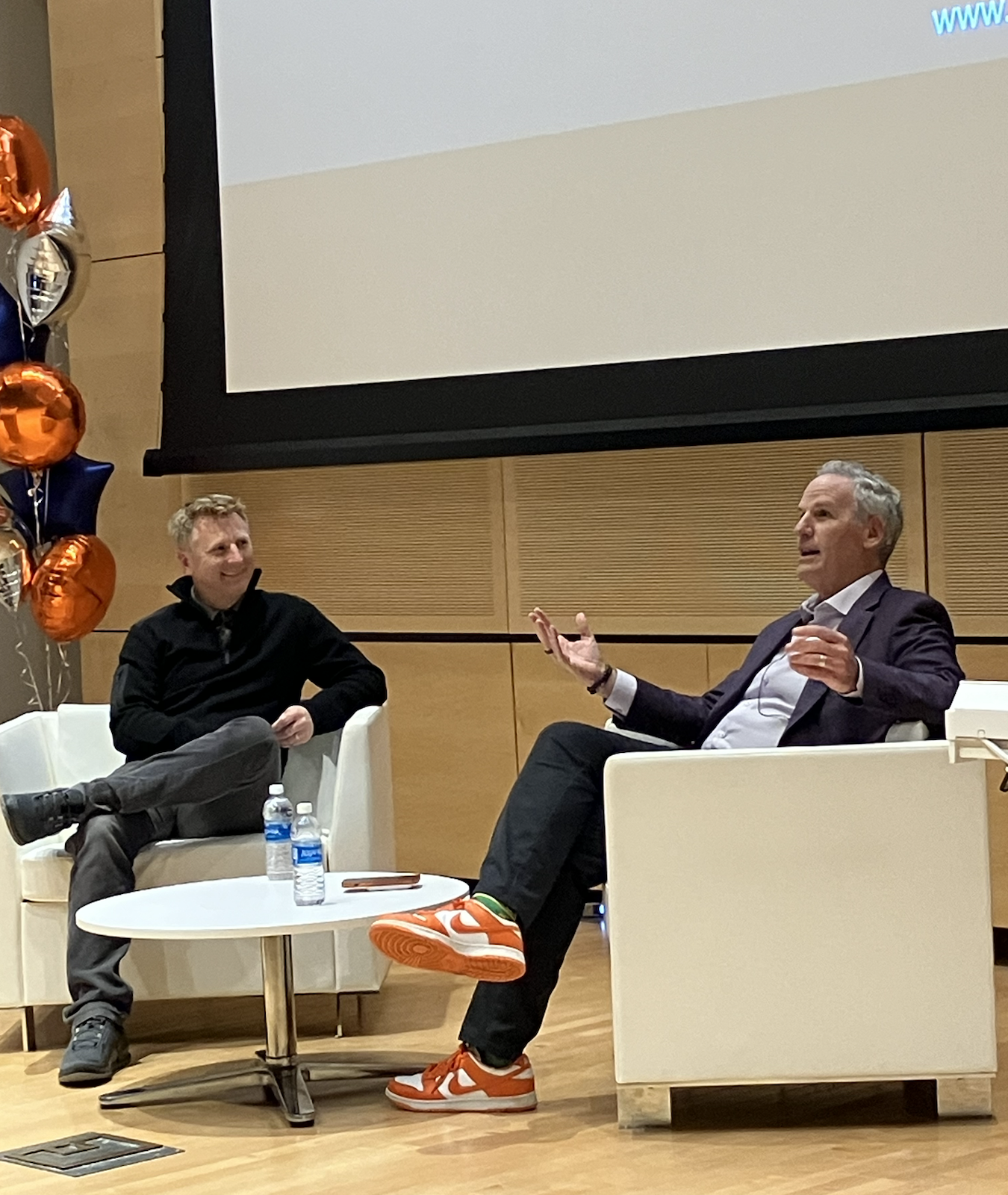Inaugural Weiss Lecture Series Speaker Rex Briggs Exudes Optimism for Future of AI
Communicators should experiment with artificial intelligence so that they can better understand the emerging technology and incorporate AI responsibly into marketing plans or other messaging, an award-winning researcher and author said.
Rex Briggs expressed so much optimism during a recent talk at the Newhouse School about the potential responsible uses of AI that he even bought a subscription to one AI system, GPT-4, for his sons so that they can test the system on their own.

Briggs sought to ignite curiosity about generative AI as the inaugural guest of the Jim Weiss Lecture Series on Nov. 9 at the Newhouse School. Briggs is the author of the forthcoming book, “The AI Conundrum,” which the publisher, The MIT Press, describes as exploring how biases and imprecision can lead to disastrous results for business and government entities that rely on the power of AI.
The lecture, which organizers plan to hold each year, and event are named after Jim Weiss ’87, founder and CEO of Real Chemistry, a global health innovation company. Together with his wife, Audra Weiss ’89, Weiss also founded the Newhouse School’s Weiss Center and sponsors the Real Chemistry Emerging Insights Lab.

“We should be embracing AI as much as possible,” said Briggs, as Weiss watched in the audience in the Joyce Hergenhan Auditorium during an opening presentation. Weiss later joined Briggs on stage for a question-and-answer session.
The two speakers created a comfortable environment in which students were able to ask burning questions about AI, and they empowered the students to start discussing, questioning and exploring AI from all angles.
“Everyone is talking about AI but few people really know what it is or how it works,” advertising professor and co-director of the Weiss Center, Beth Egan, said. “There are many misconceptions about what it can and cannot do. In order for AI to benefit—not harm—society, people need to gain a better understanding of what is happening when you work with generative AI tools such as ChatGPT.”

Briggs began his presentation with a game that demonstrated how audience members recognized a photo of reality star Kim Kardashian upside down, but AI could only recognize the same photo right-side up. Briggs showed the crowd that when presented with the upside down photo, AI’s response changed from “person” to “coal.” His main point: AI learns differently from humans.
“Our human variabilities are so strong that we can feel the inside of our pocket and identify it without looking at it,” Briggs said.
Weiss shared Briggs’ optimism about the potential positives for AI, including the capabilities to share important healthcare messaging with the public. Weiss shared that Real Chemistry is currently working on an AI-generated visual depicting the experiences of blood cancer patients.
“[AI] can help with human suffering and bring people together rather than push them apart,” Weiss said.

Briggs added that he has seen AI contribute to COVID-19 vaccination efforts by helping communicators understand how people are motivated by different forms of messaging.
“[AI] creates capabilities we didn’t have before,” Briggs said.
Through this lecture, Weiss and Briggs candidly acknowledged the limitations of AI while addressing the potential for mass productivity gains and audience understanding that has never been achieved before.
“We need to be ahead of how AI really works and how to build in safeguards,” Weiss said. “We need to understand what is and isn’t a risky bet to use AI responsibly.”
Julia Sassoon is a senior public relations major at the Newhouse School.